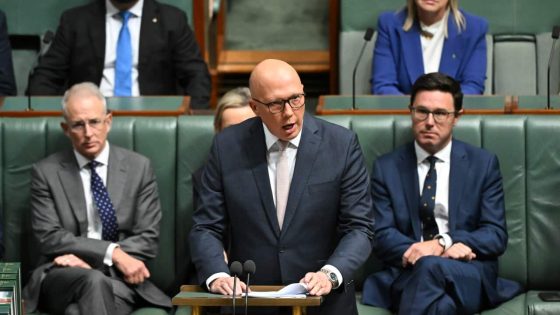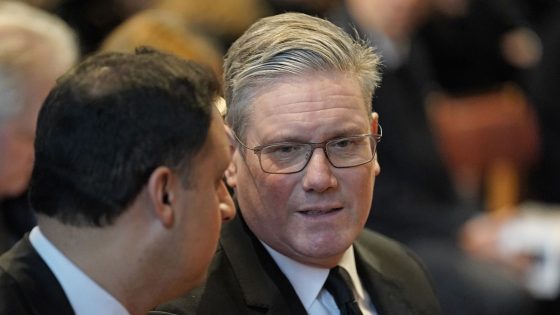Key Points
- Peter Dutton has announced several policies should the Coalition be elected at the next election in his budget reply.
- The Opposition leader has promised to slash the annual migration rate to 140,000.
- He said this would free up more than 100,000 homes over the next five years.
Peter Dutton has promised to slash the annual migration rate to 140,000 and cut back international student numbers to address the nation’s housing crisis if elected next year.
In his third budget reply speech delivered on Thursday night, the Opposition leader announced several and community safety in what he described as a road map to get Australia “back on track”.
“The budget handed down on Tuesday is one of the most irresponsible I’ve seen,” he said.
If elected, the Coalition will reduce the permanent migration program by 25 per cent, from 185,000 to 140,000 for the first two years, before rising to an intake of 160,000 in the fourth year.
Dutton said this would free up more than 100,000 homes over the next five years.
Two-year ban on foreign investors, temporary residents
The Opposition would implement a two-year ban on foreign investors and temporary residents purchasing existing homes in Australia.
Dutton said with Labor’s target to build 1.2 million homes by 2029 unlikely to be met, Prime Minister Anthony Albanese was making the housing crisis worse.
The refugee and humanitarian program planning level would also be returned to 13,750.
Thousands of people, including pensioners, would be encouraged to get back into the workforce and the Coalition will further increase the amount older Australians and veterans can work without reducing pension payments.
The existing work bonus would be tripled from $300 per fortnight to $900, in a move slated to benefit more than 150,000 pensioners.
Energy bill rebates
The number of hours those on student visas will be able to work would be lifted by 12 hours a fortnight.
A report from the government-appointed National Housing Supply and Affordability Council released in May and the Commonwealth would fall short of its goal to build 1.2 million homes by hundreds of thousands.
Dutton said the Coalition would back energy bill rebates in the budget, worth $300 for every household, but warned the government was “treating the symptom, not the disease” of inflation.
The Opposition leader is unlikely to support production tax credits worth $13.7 billion for hydrogen and critical minerals, the centrepiece of Labor’s Future Made in Australia plan.
“Magic pudding spending and $13.7 billion on corporate welfare for billionaires doesn’t help the economy, or make your life easier,” he said.
Dutton said a Coalition government would speed up approvals for gas projects and commit to an annual release of offshore acreage for exploration and development in the Northern Territory and Western Australia.
He would also defund the Environmental Defenders Office.
The Coalition would also restrict the sales of knives to minors and dangerous individuals and toughen bail laws for family violence, following a number of distressing attacks and murders, Dutton said.
He will back new offences criminalising the use of mobile phones or computer networks to be used to cause intimate partners fear or harm, and tighten bail laws.
The Opposition has also pushed for Australians to be allowed to withdraw up to 40 per cent of their retirement savings — to a maximum of $50,000 — to buy their first home.
The proposal has been criticised by economists and the superannuation industry, who said it would push up house prices, put retirees with mortgages at risk and not benefit young Australians and renters.
But the prime minister said the budget offered support for the construction industry and increased commonwealth rent assistance.
“You can’t undo 10 years of neglect in a couple of years — it takes time to do that,” he told ABC Radio.



